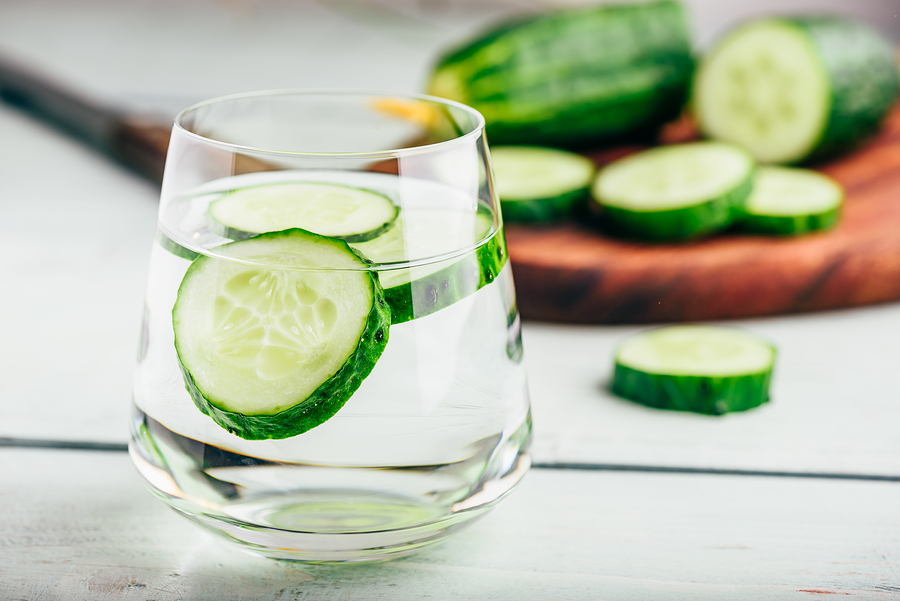Why it’s more difficult for women over 50 to lose weight
Trying to keep our ever-expanding waistlines under control is a common part of the ageing process
If you’re wondering why you’re gaining weight when you’re not eating any more or exercising any less, then it could be your age.
As we age, our muscle mass decreases, which slows our metabolism. This means our bodies don’t need as much energy as they once did. Couple that with a decrease in activity and both men and women will gain weight.
Why is it more difficult for women?

Men lose muscle as they age, and their metabolism slows but they don’t have the same hormonal changes as women.
Issues relating to menopause are often the reason why losing weight, especially around the middle, is doubly hard for women from around 50 onwards. During menopause, the hormone oestrogen decreases, which can lead to a greater accumulation of fat around the tummy area.
Unfortunately, an excess of abdominal fat can increase the risk of heart disease, stroke and type 2 diabetes, so it is important to keep our weight in check.
How many calories should I be eating over 50?
On average women lose around 20 per cent of their muscle mass after the age of 50 so will need 200 fewer calories per day than when they were 20 or 30.
As you hit your 60s then your body will need 400-500 fewer calories.
Should I increase my exercise?
Doing too much exercise can actually be counter-productive, especially as we age. It can put our bodies under too much stress which may lead to our bodies holding onto fat, especially across the tummy, and around the hips and thighs.
Moderate daily exercise is best. Regular 20 or 30-minute sessions will increase fat loss, fitness and cardiovascular health. Shorter sessions are also easier to fit into your day, can be done at home and so are easier to stick to. As we age our bodies do not recover as quickly as they used to so shorter workouts will allow more time for rest and recovery.
Which are the best ways to give my metabolism a boost?

Strength training – Any type of exercise where you lift or pull against resistance will increase muscle mass which helps burn more calories. Even just carrying a full washing basket or shopping bags to and from the car can help.
Eat lots of lean protein – such as fish, chicken, eggs and tofu. Ensuring protein makes up about 40-45% of your daily diet will help keep hunger at bay.
Don’t skip breakfast – it’ll only make you hungrier later in the day!
Cut down on processed carbohydrates – Eat less bread, cakes and pasta and more fresh vegetables.
Try and eat most of your carbohydrates in the first half of the day and less in the evening. Eating them earlier means they’ll be used for energy and be less likely to be stored as fat.
Avoid sugar – Sugar spikes your insulin, and regular spikes are linked to long term fat gain. As we age, we become more insulin resistant, which means that sugar is less likely to be utilised for energy and more likely to be stored as fat. Try using sugar substitutes in your cooking, baking and hot drinks and study the labels on your food – you’ll be amazed at how much is added. Although don’t be too obsessive about it, you’re allowed the occasional treat!
Reduce alcohol – alcoholic drinks are full of sugar and high in calories
Drink plenty of water – it can suppress your appetite, boost your metabolism, and make exercise easier and more efficient.
Keeping fit and trim after 50 and beyond is not easy but it is so worth it. And if you fall off the waggon from time to time, don’t worry, just start afresh the next day. Your body will thank you for it!
Melina - Assistant Editor
Latest posts by Melina - Assistant Editor (see all)
- 4 Homemade Sweet Treats for Easter - April 10, 2025
- Bowel Cancer Awareness Month : know the signs - April 5, 2025
- Playground Memories - March 10, 2025
- Banana bread with SunGold kiwis - February 20, 2025
- A tribute to Bob Marley - February 4, 2025



















